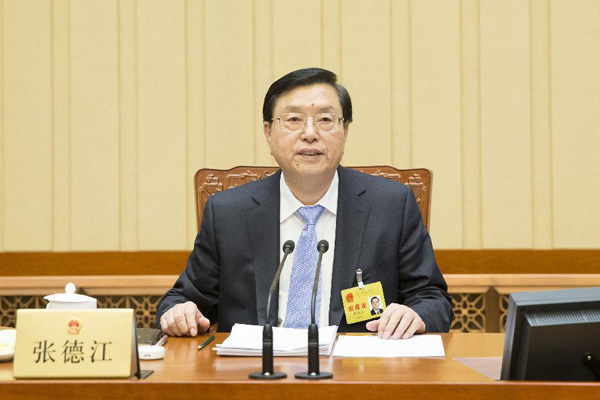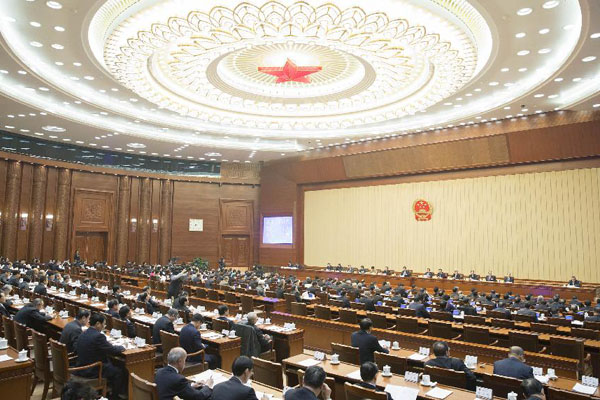Top legislature adopts drug approval reforms to incentivize researchers

Zhang Dejiang, chairman of the Standing Committee of the National People's Congress (NPC), presides over the closing meeting of the 17th session of the 12th NPC Standing Committee, in Beijing, capital of China, Nov. 4, 2015. (Xinhua/Huang Jingwen)
BEIJING -- A proposal on experimental changes to the drug licensing system was adopted by the top legislature on Wednesday, aiming at promoting pharmaceutical innovation and better quality by giving more incentive to researchers.
Under the three-year experiment, drug research and development agencies and researchers can directly apply for licenses to mass produce drugs developed by them. Previously, only drug manufacturers could apply for licenses and researchers were required to transfer their results to the producers.
The uncertainty over licensing results put researchers at a disadvantage in their negotiation with pharmaceutical companies, making them less motivated in their job, Bi Jingquan, head of the China Food and Drug Administration, told lawmakers.
Lawmakers voted on the proposal at the closing meeting of the bimonthly session of the National People's Congress (NPC) Standing Committee.
The experiment, taking effect on Thursday, will be piloted in 10 provincial regions including Beijing, Tianjin, Hebei, Shanghai, Jiangsu, Zhejiang, Fujian, Guangdong, Shandong and Sichuan.
The proposal says the reform aims to narrow the gap of pharmaceutical development between China and developed countries and promote China-made generic drugs in the global market.
"The quality of some generic drugs lags far behind their international counterparts," a problem which reforming the licensing system could address, Bi said.
Struggling to meet public demand for medication, China's drug licensing system does not suit the development of the drug-making industry, he said.
After three years, the State Council will submit a report on the experiment to legislature and allow lawmakers to decide whether or not to formally revise the law.

The 17th session of the 12th National People's Congress (NPC) Standing Committee is closed in Beijing, capital of China, Nov. 4, 2015. (Xinhua/Huang Jingwen)



